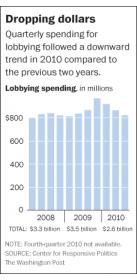A part of the answer is to gear your economy to produce the stuff that not everyone else can, but that you foresee growing global demand for. Hifi for one -- big American amps 
We can't compete on cheap mass merchandise such as clothing, but it's stuff in the energy industry, transportation and other large scale techs where relatively few countries have the population, engineering and design base to compete -- this is where we could and in some cases do lead. As the world changes, empires adjust to it or don't, and they fade. A good chunk of this is will and a functioning political system that is pragmatic and not dogmatic. I think we're in trouble on both counts.
We can't compete on cheap mass merchandise such as clothing, but it's stuff in the energy industry, transportation and other large scale techs where relatively few countries have the population, engineering and design base to compete -- this is where we could and in some cases do lead. As the world changes, empires adjust to it or don't, and they fade. A good chunk of this is will and a functioning political system that is pragmatic and not dogmatic. I think we're in trouble on both counts.


